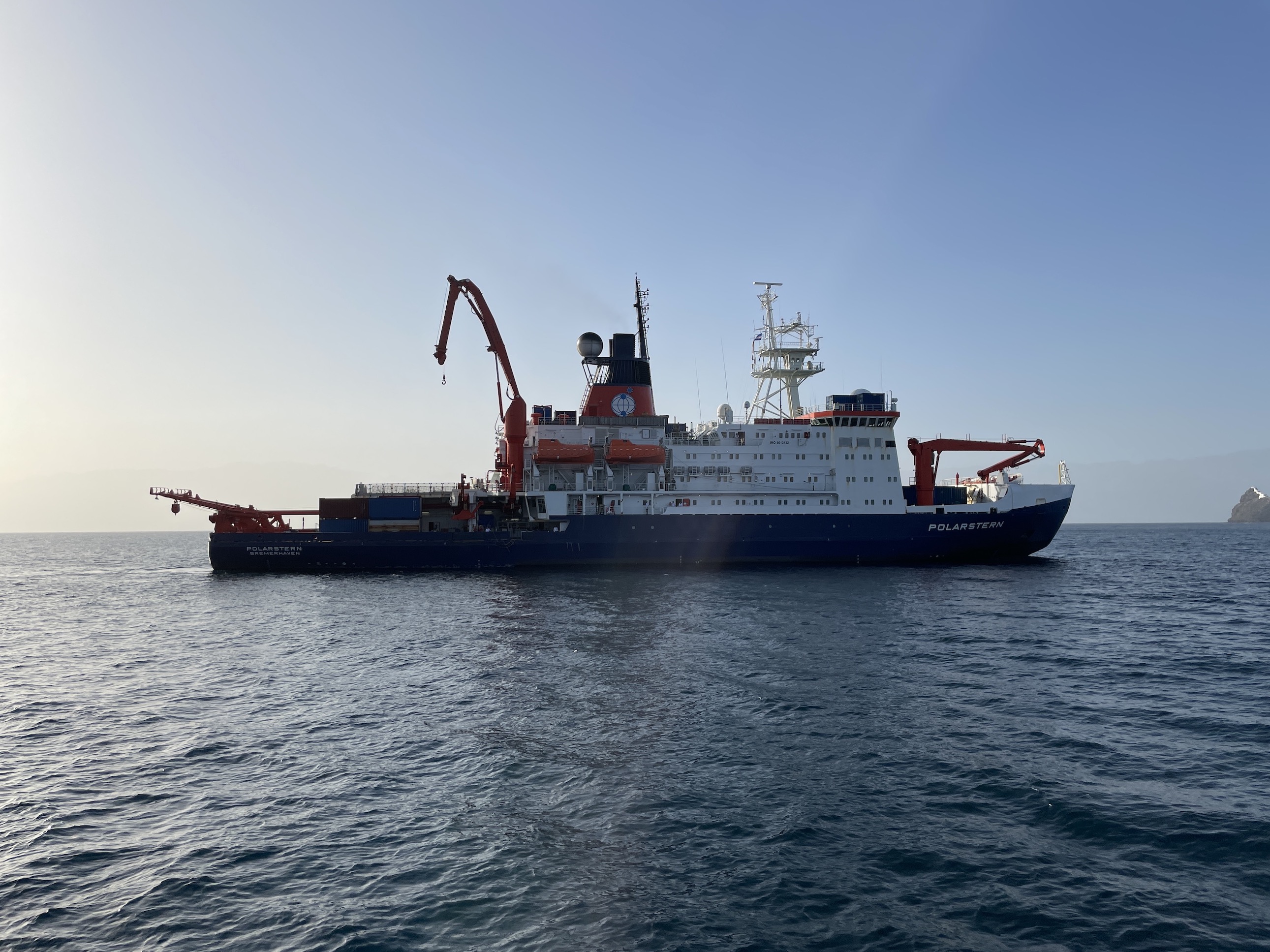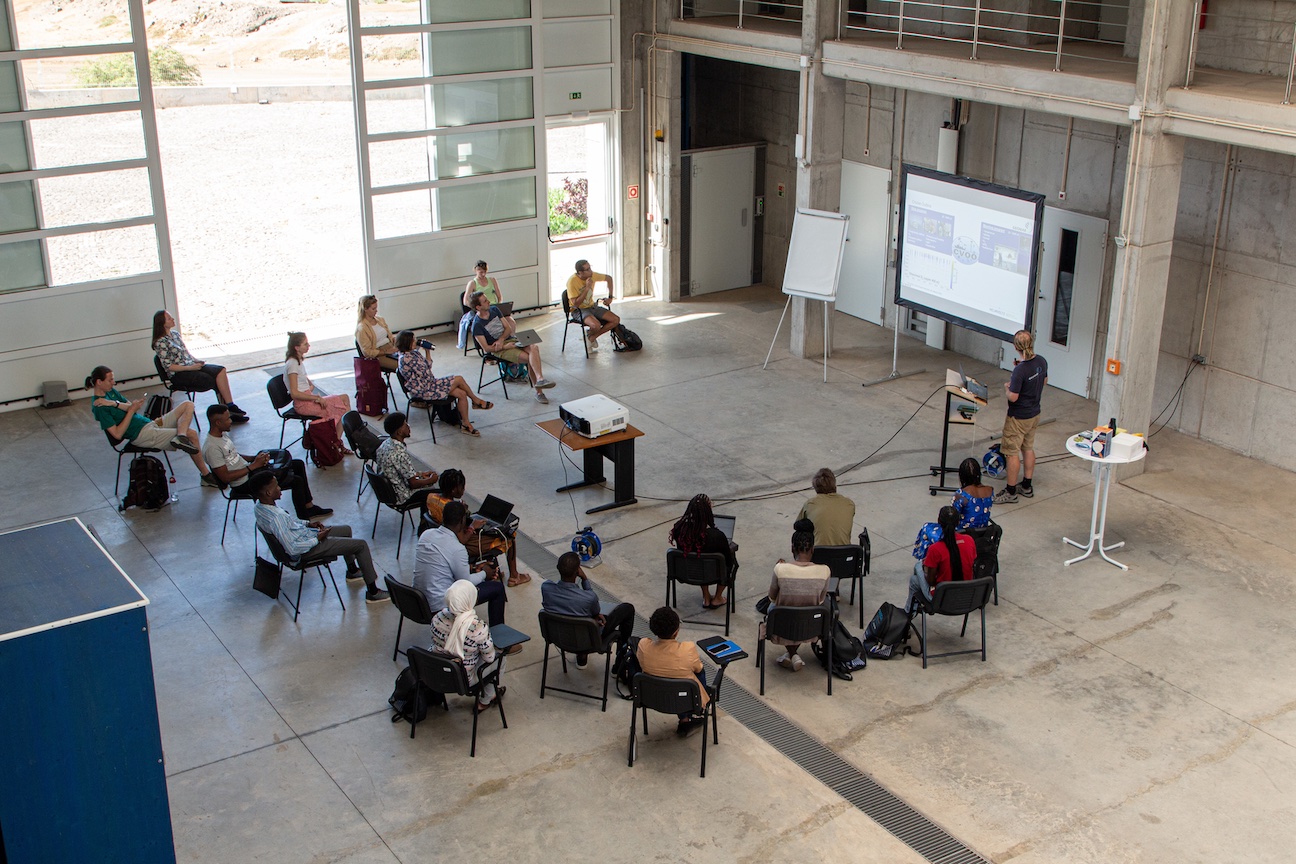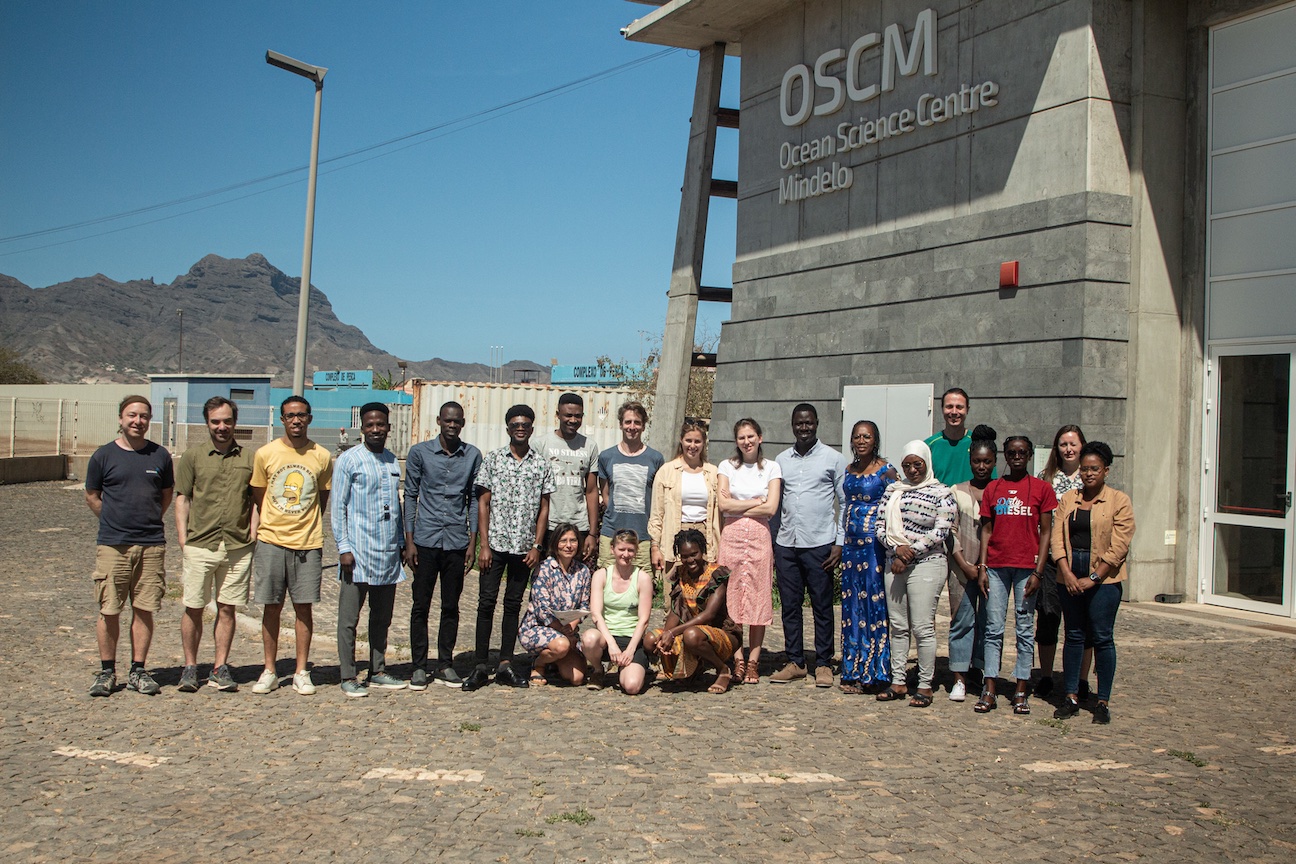… something special must be happening. And it is – the next “WASCAL Floating University” is about to start. After we had our premiere last year with the research vessel Maria S. Merian (MSM106), we have another premiere this year with the next cohort of students: This year our Floating University will take place on the 118 m long German research icebreaker Polarstern, which is operated by the Alfred Wegener Institute (AWI).
(Deutsche Version siehe unten)

No, we won’t be taking our students on an expedition to Antarctica or the Arctic. But instead, we’ll take advantage of the fact that the Polarstern crosses the tropical Atlantic twice a year to conduct research in both polar regions. As the ship passes quite close to Cape Verde, we’ll have the opportunity to go on board and conduct scientific work with our students.
After more than 2 years of preparation, we are finally able to welcome the Polarstern in the bay of Mindelo. Since the ship with her 11 m draft, unfortunately, does not fit into the harbour, she will anchor outside in front of the pier. From shore, we will be picked up together with our equipment and brought on board the Polarstern. Afterwards, we will set sail and conduct various scientific work with the students on our way to Germany.

“We”, that is 9 scientists from GEOMAR Helmholtz Centre for Ocean Research Kiel, the Kiel University (CAU), the Leibniz Institute for Baltic Sea Research in Warnemünde (IOW), the University of Oslo from Norway (UiB), the Universidade Técnica do Atlântico from Mindelo, Cabo Verde (UTA), as well as the students of the WASCAL Master’s program “Climate Change and Marine Sciences”, which is based in Mindelo at UTA.
The students come to Mindelo from 10 West African countries to study for two years and undergo training at sea. The course is part of the large West African program “WASCAL”, which is funded by the German Federal Ministry of Education and Research (BMBF) and supported by GEOMAR.
In the last days, all participants from Europe arrived in Mindelo and we prepared intensively for the cruise in a two-day interactive workshop at the Ocean Science Centre Mindelo (OSCM). This allowed all participants to get to know each other and discuss their different expectations for the upcoming trip.
In this blog, we will report regularly on the trip. Both the blog and our current position can be followed closely at beluga.geomar.de.
Björn
Cruise leader of PS135/2
Kommt ein Eisbrecher nach Westafrika, …
… muss anscheinend etwas Besonderes anstehen. Und dem ist auch – die nächste „WASCAL Floating University“ befindet sich kurz vor ihrem Start. Nachdem wir letztes Jahr unsere Premiere mit dem Forschungsschiff Maria S. Merian (MSM106) hatten, haben wir dieses Jahr mit dem nächsten Studierenden-Kohort eine weitere Premiere: Unsere Floating University findet dieses Jahr auf dem 118 m langen, deutschen Forschungseisbrecher Polarstern statt, welcher vom Alfred-Wegener-Institut (AWI) betrieben wird.
Nein, wir werden keine Expedition in die Antarktis oder Arktis mit unserer Studierenden durchführen. Stattdessen nutzen wir die Gelegenheit, dass die Polarstern zweimal pro Jahr den tropischen Atlantik durchquert, um Forschungsarbeiten in beiden Polarregionen durchzuführen, denn dabei kommt das Schiff den Kapverden ziemlich nahe.
Nach mehr als 2 Jahren Vorbereitungszeit dürfen wir nun endlich die Polarstern in der Bucht von Mindelo begrüßen. Da das Schiff mit ihren 11 m Tiefgang leider nicht in den Hafen passt, wird es draußen vor der Mole ankern. Von Land aus werden wir dann samt Ausrüstung abgeholt und an Board gebracht. Anschließend werden wir in See stechen und auf dem Weg nach Deutschland verschiedene wissenschaftliche Arbeiten mit den Studierenden durchführen.
„Wir“, das sind 9 Wissenschaftler vom GEOMAR Helmholtz Zentrum für Ozeanforschung Kiel, die Christian-Albrechts-Universität zu Kiel (CAU), dem Leibniz-Institut für Ostseeforschung in Warnemünde (IOW), der Universität Oslo aus Norwegen (UiB), der Universidade Técnica do Atlântico aus Mindelo, Cabo Verde (UTA), sowie die Studierende des WASCAL Master’s program “Climate Change and Marine Sciences”, welches in Mindelo an der UTA beheimatet ist.
Die Studierenden kommen aus 10 westafrikanischen Ländern nach Mindelo, um dort zwei Jahre lang zu studieren und auch ein Training auf See zu absolvieren. Der Studiengang ist Teil des großen westafrikanischen Programms „WASCAL“, welches vom deutschen Bundesministerium für Bildung und Forschung (BMBF) finanziert wird und durch das GEOMAR unterstützt wird.
In den letzten Tagen sind alle Teilnehmer aus Europa allesamt in Mindelo eingetroffen und wir haben uns am Ocean Science Centre Mindelo (OSCM) in einem zweitägigen, interaktiven Workshop intensiv auf die Fahrt vorbereitet. Dabei konnten sich alle Teilnehmer kennenlernen und ihre unterschiedlichen Erwartungen an die bevorstehende Reise diskutieren.
In diesem Blog werden wir regelmäßig von unterwegs berichten. Sowohl der Blog als auch unsere aktuelle Position kann beispielsweise auf beluga.geomar.de genau verfolgt werden.
Björn
Fahrtleiter von PS135/2

Congratulations, I wish you a good and safe trip. I remember the time!